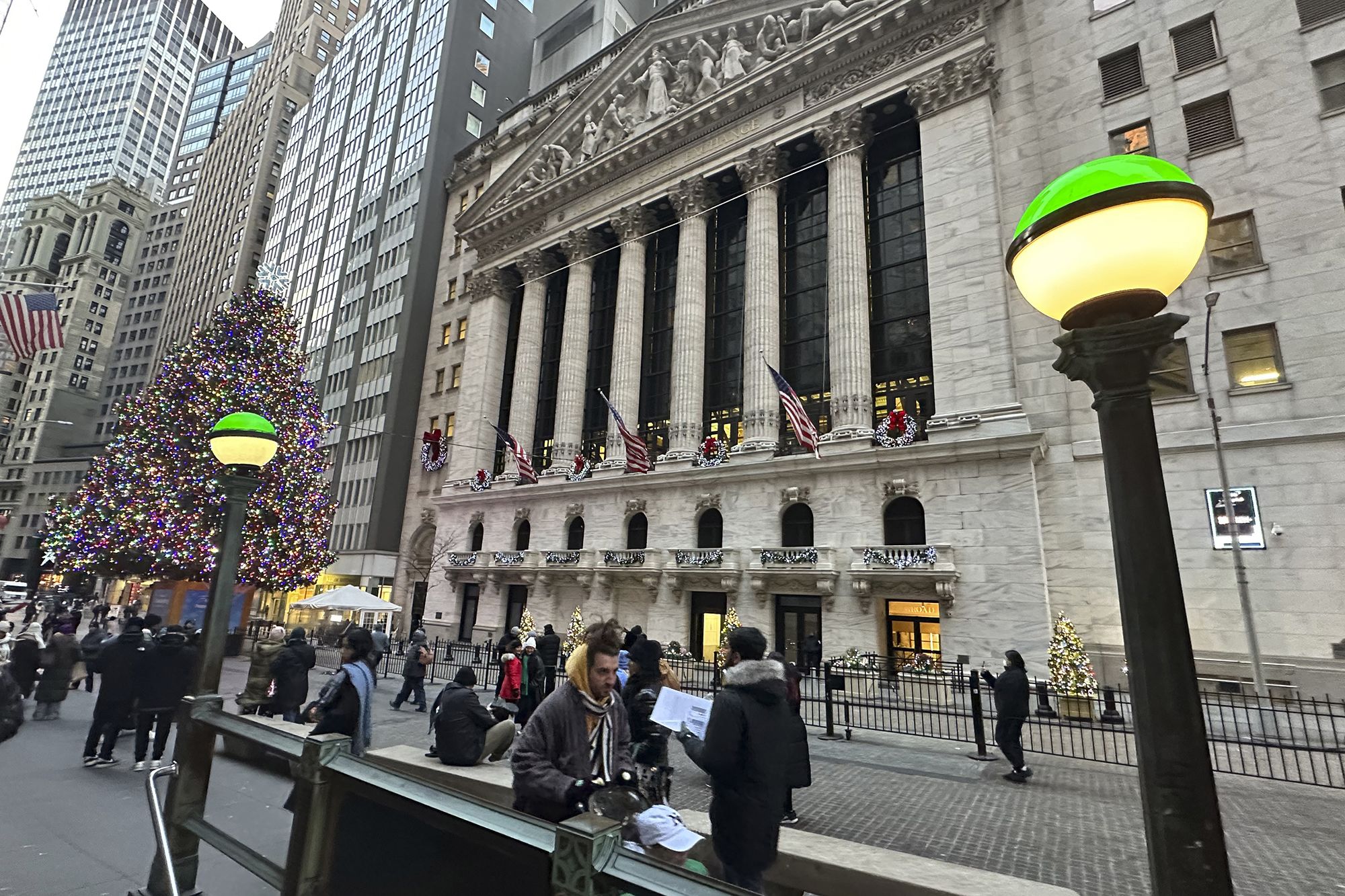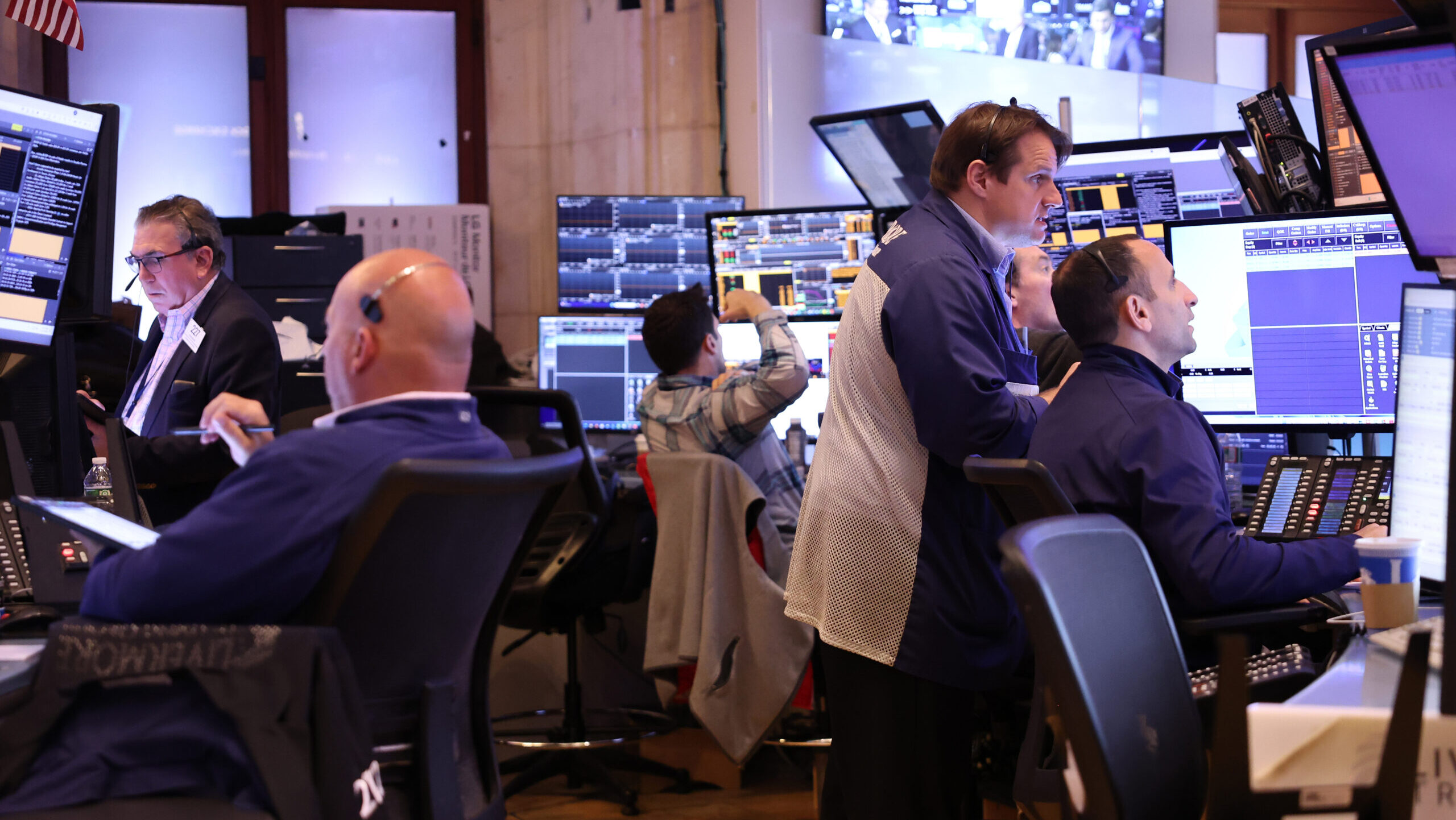New York (CNN) — US markets wrapped up a blockbuster 2024 by marking an achievement so rare that it’s only ever happened a handful of times.
Despite US stocks closing lower Tuesday in a disappointing December that saw the Dow drop over 2,000 points, or about 5%, and the S&P 500 slide 2.74%, this was a stellar year for stocks.
The S&P 500 gained about 24% this year after rising 24% in 2023. The back-to-back gains of over 20% is the best performance for the benchmark index since 1997 and 1998, according to data from FactSet.
It’s an extraordinary event for the modern-day version of the index. (Precursors also racked up that kind of performance three other times, in 1927 and 1928, 1935 and 1936 and in 1954 and 1955, according to a Bank of America analysis.)
That means your retirement savings might be looking a little more cushioned than usual. Retirement plans in the form of a 401(k) or other pension fund are often invested in indices like the S&P 500. So, when stocks have a standout year, your account balance will benefit.
Despite fizzling out in December and missing an expected “Santa Claus rally” to close out 2024, markets notched a blockbuster year, building off a strong 2023.
Wall Street saw impressive returns this year as inflation cooled and consumer spending remained strong, while the job market proved solid but slowing. Investors were bullish on strong earnings growth for tech companies, and stocks surged following President-elect Donald Trump’s reelection in November.
The blue-chip Dow index rose over 12% this year, while the tech-heavy Nasdaq index gained over 30%.
The S&P 500 is up by around 53% over the past two years, after a poor performance in 2022 that saw the index fall 20%.
US markets have also outperformed stocks in Europe and Asia across this year.
“Inflation is waning, interest-rate cuts are in motion and earnings are trending higher, all which bolster sentiment and provide valuation support,” said Terry Sandven, chief equity strategist at US Bank Wealth Management.
The consensus among big banks and research analysts appears to be continued growth into 2025 amid strong economic data, earnings growth and expectations of a business-friendly Trump administration. Analysts expect the S&P 500 to rise by 14.8% in 2025, according to FactSet.
But some analysts say stocks are currently overvalued, and uncertainty over the speed of future rate cuts from the Federal Reserve as well as looming geopolitical risks could spark a selloff. With such eye-watering gains in the past two years, it is uncertain whether the bull market can last.
“We believe the chances of another positive year in 2025 are favorable given the high probability of economic growth and a Fed that is likely to cut rates next year,” Jeffrey Buchbinder, chief equity strategist at LPL Financial, said in a December 30 note. “But if resurgent inflation takes rate cuts off the table or speculation gets out of hand, this bull market could have a difficult time making it through next year.”
December was the worst month since April for the S&P 500 and the Nasdaq, according to data from FactSet, as selloffs in tech stocks dragged the indices lower.
Indeed, it’s rare to see three straight years of 20% gains in the stock market, according to Callie Cox, chief market strategist at Ritholtz Wealth Management.
“Everybody’s expecting a good year next year, and that leaves a lot of room for disappointment,” Cox told CNN.
The year in review for markets
In September, the Fed began cutting interest rates after holding them at decades-highs since the summer of 2023. The combination of the Fed beginning to cut rates and strong economic growth boded well for US equities.
Cooling inflation boosted investor optimism, but after its final policy meeting of the year, the Fed signaled there will be fewer cuts in 2025 than previously expected, which could sap the market’s momentum next year.
S&P 500 index: US tech companies had a standout year and drove the S&P 500 about 24% higher.
The “Magnificent Seven” of tech stocks — Alphabet, Amazon, Apple, Meta, Microsoft, Nvidia and Tesla — have accounted for over 50% of the S&P 500’s total returns this year, according to data from S&P Dow Jones Indices.
And, since November 5, the Mag Seven stocks have accounted for over 96% of the S&P 500’s gains. Nvidia (NVDA) stock was a top performer of the year, surging just under 180%.
While Big Tech stocks boosted gains, stock market breadth has been poor. Most companies in the S&P 500 have fallen since November, while the index has been helped by the Magnificent Seven’s gains, according to S&P Dow Jones Indices.
Dow Jones Industrial Average: The Dow gained more than 12% across the year. The blue-chip index peaked at a record just above 45,000 points on December 4 before falling 5% in December.
American chipmaker Nvidia joined the Dow in November.
Nasdaq Composite: The Nasdaq surged higher by more than 30% in 2024. The tech-heavy index was the star of the major indices and surged on investor confidence in tech and AI.
Palantir (PLTR), the AI-focused data company whose stock rose almost 360% this year, joined the Nasdaq in December.
US Treasuries: The yield on the 10-year US Treasury note edged to 4.57% on Tuesday. The yield on the 10-year US Treasury note rose by over 15% in 2024, signaling expectations of future economic growth and inflation.
The yield on the 2-year Treasury note slid to 4.232% on Tuesday.
The US dollar rose near the end of the year on expectations of economic growth. The US dollar surged after Trump’s reelection in November. The US dollar index, which measures the dollar against a basket of other currencies, is up over 6% across the year, according to data from FactSet.
Bitcoin slid to $93,400 around by 4 p.m. on Tuesday and was down nearly 4% for the month. The world’s largest cryptocurrency has had a memorable year, surging by about 120% across 2024.
That’s a turn of fortune from just two years ago, when bitcoin traded below $17,000 after the crypto industry imploded.
Bitcoin — which is highly volatile — rallied this year as it continued to garner mainstream acceptance through Trump’s embrace of cryptocurrencies.
Trump has tapped Paul Atkins, a former commissioner at the Securities and Exchange Commission and a crypto advocate, to be SEC chair. After Trump announced his pick, bitcoin crossed $100,000 for the first time.
Gold also had a notable year, rising by more than 26% and on track to just outpace the S&P 500.
Investors often see gold as a safe haven against economic turmoil and inflation. When the Fed cuts rates, gold can become more appealing than income-paying assets like bonds.
Gold’s rally, however, was also driven as central banks around the world continued to increase their gold reserves.
Commodities: Which investment yielded the most surprising returns this year? Cocoa.
Cocoa futures on the New York exchange surged almost 200% across the year.
Futures prices for cocoa skyrocketed as climate issues disrupted cocoa harvests in Ghana and the Ivory Coast, where over 70% of global cocoa is produced. The squeeze in supply sent futures prices soaring.
Futures for coffee and orange juice also surged this year due to erratic climate and poor outlooks for harvests.
Futures contracts are often traded by institutional investors like big banks or asset management firms, as opposed to individual investors.




